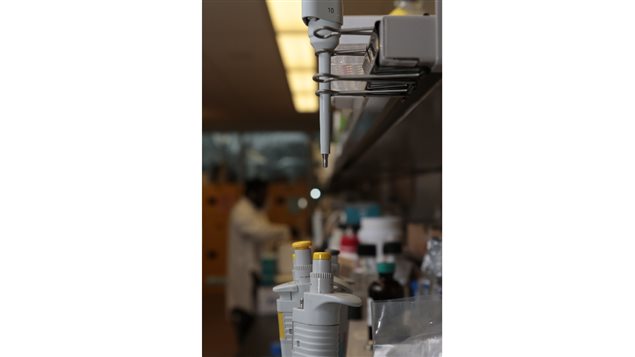Canada’s Auditor-General released a report this week on how well Canada is doing in terms of dealing with the increasingly worrisome phenomenon of drug-resistant bacteria, or “superbugs”.

Biochemistry professor Gerry Wright (PhD) director of McMaster University’s Michael G. DeGroote Institute for Infectious Disease Research in Hamilton Ontario. He has looked at the A-G report
Listen
The A-G report was critical of Canada’s health agencies for not having an organized and co-ordinated plan to deal with the issue.
In the report Michael Ferguson writes, “Overall, we found that the Public Health Agency of Canada (the Agency) has not succeeded in mobilizing all federal, provincial, and territorial partners and other stakeholders toward the development of a pan-Canadian strategy to address antimicrobial resistance…..(and) hat the Public Health Agency of Canada (the Agency) and Health Canada (the Department) have not fulfilled key responsibilities to mitigate the public health risks posed by the emergence and spread of antimicrobial resistance in Canada”

Professor Wright says the A-G report has understood the issue and agrees with his recommendations which call for such things as greater control over unrestricted agricultural use of antibiotics in Canada.
Documentary- the antibiotic hunters
Discovery- maple syrup helps antibiotics
“Running out of effective antibiotics is a real possibility that presents a grave danger, not only in Canada, but around the world,” says Gerry Wright, director of McMaster University’s Michael G. DeGroote Institute for Infectious Disease Research. “We need to do more right now to develop new antibiotics, squeeze more life from the ones we already have, and to use all antibiotics more effectively, both in humans and in animals.”

A respected British report suggests that as many as 10 million more people could die each year by 2050, as bacteria continue to develop ways to overcome existing antibiotics, many more than cancer, diabetes, or other health issues, unless more investment is made to discover new and improved antibiotics.







For reasons beyond our control, and for an undetermined period of time, our comment section is now closed. However, our social networks remain open to your contributions.